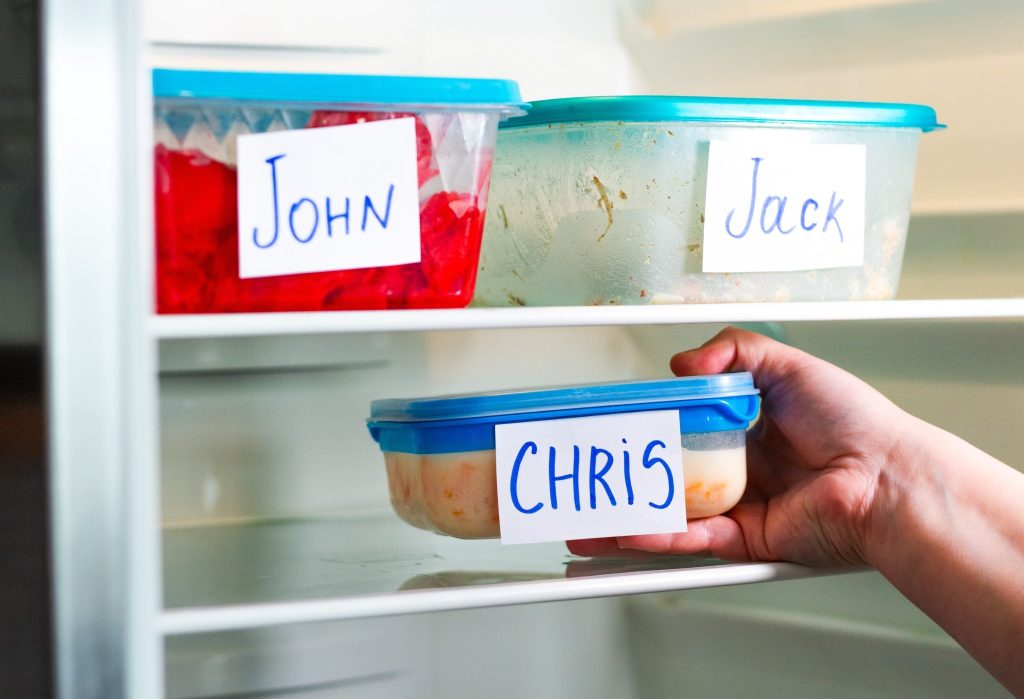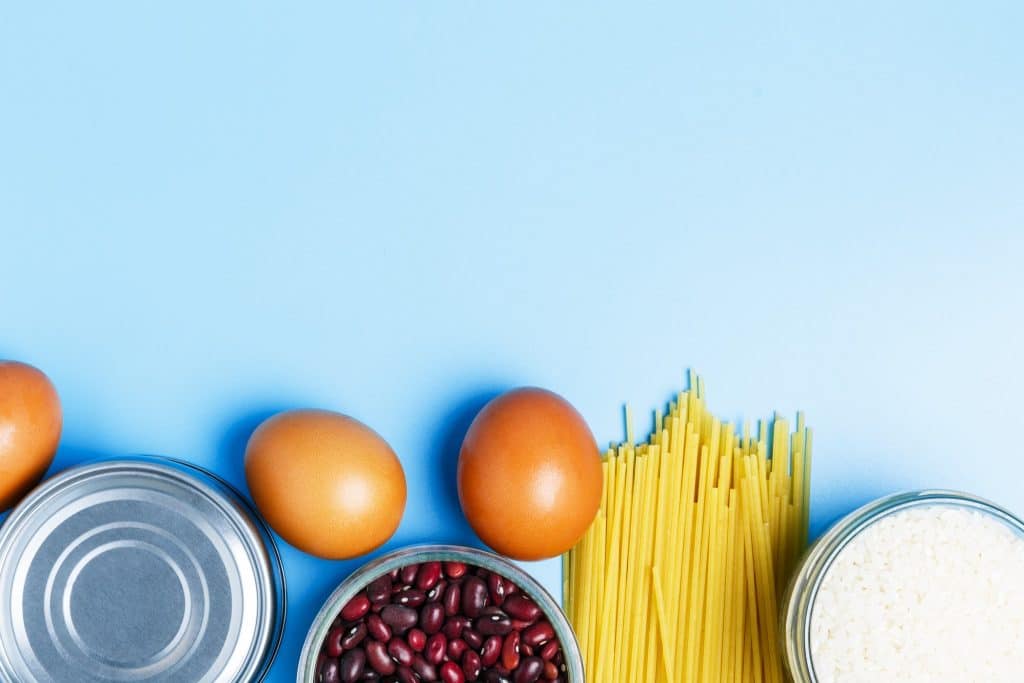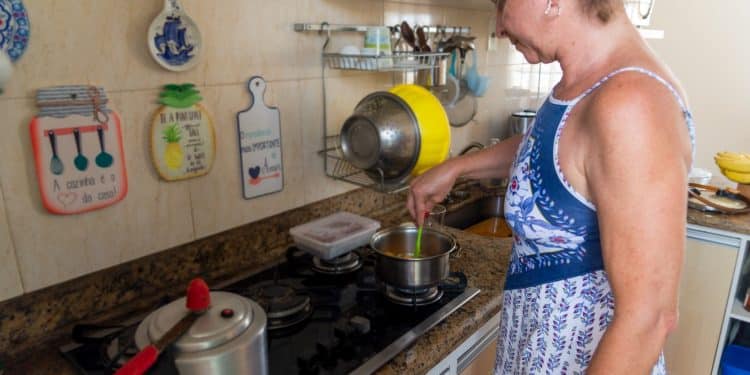Hostels can save your trip; your food budget can, too. With the right hostel cooking tips, you turn a tiny stove and shared fridge into a reliable plan that keeps you fed, fast, and under budget. Picture this: you arrive in Barcelona, drop your pack, and within an hour you have breakfast, lunch, and dinner mapped out for less than a single restaurant bill. This guide shows exactly what to buy for $30, how to store it, and how to cook six speedy meals that work anywhere. From pantry picks to protein hacks, these hostel cooking tips are simple, flexible, and traveler-tested. Pack light; cook smarter; explore more—then come back to a hot plate you made yourself.
Why Cook in Hostels Instead of Eating Out Every Day?
Eating out drains cash quickly; cooking gives you control. Use hostel cooking tips to dodge tourist prices, skip hangry choices, and keep energy up for long walking days. Even a basic shared stove beats another overpriced sandwich that leaves you hungry two hours later.
In many cities, shops like Walmart or neighborhood discount grocers sell affordable staples you can carry in a daypack. The goal is simple: low prep, minimal cookware, high nutrients. With hostel cooking tips, you can mix and match a few smart ingredients so every plate feels fresh while your spending stays tight.
Explore more budget-first ideas On a Budget
How to Use Shared Kitchens Without Stress
Shared spaces work best when you keep gear tidy and time short. These hostel cooking tips help you fit in and cook fast:
- Label food with your name and checkout date.
- Clean pans right after use so others can cook.
- Reserve a small shelf corner for ready-to-grab breakfasts.
- Keep one reusable container—think Tupperware—to stash leftovers.
Respectful habits make kitchens friendlier; friendly kitchens make trips smoother. Follow hostel cooking tips like these and you will eat sooner, smile more, and meet fellow travelers over sizzling pans.
Smart tricks for the road Travel Hacks
Smart Storage & Prep in Tiny Kitchens
Use these hostel cooking tips to stretch freshness and reduce waste:
- Batch the base. Cook a pot of rice or pasta once; portion it for two or three meals.
- Slice only what you need. Cut half the onion now; leave the rest whole for tomorrow.
- Use the freezer. Frozen veg are pre-washed and do not spoil overnight.
- Portion protein. Drain beans or tuna; mix with a bit of oil and spices; keep half for later.
Add a little structure; save a lot of time. That is the heart of smart hostel cooking tips.

The $30 Backpacker Grocery List (USD Sample)
This list is tuned for three to four days of breakfasts, lunches, and dinners for one person, using hostel cooking tips that favor shelf-stable items and minimal waste. Prices vary by country; treat these as ballpark U.S. supermarket figures. Adjust quantities if you are splitting costs with dorm mates.
Staples & Carbs
- 1 lb rice — $1.50
- 1 lb pasta — $1.20
- Quick oats (18 oz) — $2.70
- 1 loaf whole-grain bread — $2.00
Protein
- 1 dozen eggs — $2.50
- 1 can chickpeas + 1 can black beans — $2.00
- Peanut butter (12–16 oz) — $2.00
- Canned tuna (2–3 small cans) — $3.00
Veg & Flavor
- 1 lb frozen mixed vegetables — $2.20
- 1 onion + 2 tomatoes + 1 bell pepper — $3.00
- Garlic bulb — $0.50
- Bananas (6) — $1.50
- Yogurt (plain, ~500 g) — $2.00
Extras (Tiny but Mighty)
- Small salt + pepper packets (often free/hostel stash) — $0
- Mini oil (100 ml) — $1.90
Estimated total: ≈ $30.20 (shave $0.20 by buying one less tuna can or a smaller yogurt). With smart hostel cooking tips, you will turn this tiny haul into meals that feel varied without draining your wallet.
Plan where to try local markets next: Epic Destinations
Six Fast Meals You Can Cook in Almost Any Hostel
Each recipe takes about 10–15 minutes after basic prep. They are flexible: swap chickpeas for beans, rice for pasta, or add whatever local produce is cheap. Keep hostel cooking tips handy as you read—every dish has a tweak that fits tight kitchen schedules.
1) Five-Minute Peanut Butter Banana Overnight Oats
- Ingredients: Oats, yogurt, banana, peanut butter, a splash of water.
- Method: Stir ½ cup oats with ½ cup yogurt and a splash of water. Add 1 tbsp peanut butter; slice ½ banana on top. Chill overnight.
- Hostel cooking tips: Use a jar or cup; cover with plastic wrap. Add cinnamon if the freebie shelf has it.
- Variation: Swap banana for diced apple; drizzle a bit of jam if around.
- Why it works: No stove, no mess, steady protein.
2) One-Pan Veggie Egg Scramble on Toast
- Ingredients: Eggs, onion, frozen veg, tomato, oil, bread.
- Method: Sauté 2 tbsp diced onion in 1 tsp oil; add ¾ cup frozen veg. Push to the side; scramble 2–3 eggs. Combine; top toast.
- Hostel cooking tips: Cook veg first to release moisture. If the stove is busy, microwave veg, then scramble.
- Variation: Add beans for extra protein; sprinkle chili flakes from the free shelf.
3) Speedy Rice & Beans with Tomato-Garlic Sizzle
- Ingredients: Rice (pre-cooked), chickpeas/black beans, garlic, tomato, oil, salt/pepper.
- Method: Warm 1 tsp oil; sizzle 1 clove garlic; add diced tomato and beans. Stir in 1 cup cooked rice. Season to taste.
- Hostel cooking tips: Make a double batch; store half for lunch.
- Variation: Add a squeeze of lemon if available; top with a fried egg for power.
4) Tuna-Pepper Pasta Toss
- Ingredients: Pasta, canned tuna, bell pepper, onion, oil, optional yogurt spoonful.
- Method: Boil pasta. While it cooks, sauté sliced pepper and onion. Fold in tuna; add pasta and a spoon of pasta water.
- Hostel cooking tips: Finish with a spoon of yogurt for a light, creamy texture.
- Variation: Add chili flakes or a pinch of dried herbs if you find them.
5) Ten-Minute Stir-Fried Rice with Egg
- Ingredients: Cooked rice, frozen veg, egg, garlic, oil, soy-style seasoning if available.
- Method: Hot pan; oil; garlic; frozen veg; then rice. Push to side; scramble egg; combine.
- Hostel cooking tips: Cold rice fries best; cook rice earlier and chill.
- Variation: Swap egg for chickpeas to keep it plant-based.
6) No-Cook Tuna Bean Salad Sandwich
- Ingredients: Bread, tuna, beans, tomato, onion, oil, salt/pepper.
- Method: Mix tuna, beans, diced tomato, a little onion, 1 tsp oil. Season. Spoon into sandwiches.
- Hostel cooking tips: Wrap leftovers for tomorrow’s bus ride.
- Variation: Add a small smear of peanut butter for richness—sounds odd, works well.
Working on the road between meals?
Digital Nomad

Portion Math for Three Days (Solo Traveler)
Use this quick plan to see how the $30 list scales with hostel cooking tips that reduce waste:
- Breakfast (3x): Overnight oats twice, egg toast once.
- Lunch (3x): Tuna bean sandwich, leftover stir-fry, rice & beans cup.
- Dinner (3x): Tuna-pepper pasta, stir-fried rice with egg, rice & beans redux with fried egg.
- Snacks: Banana, spoon of peanut butter, yogurt.
This rotation uses most perishables within 48–72 hours. Staying longer? Repeat and replenish only two or three items.
Micro-Kit That Fits in Your Daypack
You rarely need more than the hostel provides, but a tiny kit gives independence. Pin these hostel cooking tips to your packing list:
- Spork + folding knife (if allowed; otherwise a small plastic knife).
- Collapsible cup/bowl for oats and soups.
- Mini spice vial: salt/pepper or a favorite blend.
- Two resealable bags for leftovers and dry goods.
- Light microfiber cloth for quick cleanups.
Lightweight gear turns any shared space into your efficient kitchen.
The Golden Rules of Shared-Fridge Survival
Shared fridges can swallow your snacks. These hostel cooking tips keep food safe and findable:
- Label everything with name and checkout date.
- Use one bag to group items; easy to move during shelf cleans.
- Do not overbuy. Two dinners ahead is enough.
- Keep spices small. Borrow from free shelves; leave a little behind as a kindness.
Hostels notice considerate cooks; considerate cooks get kitchen karma.
Flavor Without a Spice Rack
You do not need 10 spices to make food tasty. Rely on hostel cooking tips that unlock flavor from basics:
- Toasting starches: Warm rice/pasta briefly in oil before saucing.
- Garlic first: A quick sizzle perfumes the whole dish.
- Acid lift: A squeeze of citrus or a spoon of yogurt brightens heavy meals.
- Texture change: Crunchy bread beside soft beans feels like a new meal.
Small moves; big payoff.
Protein on a Budget (That Travels Well)
Protein keeps you full while city-hopping. These hostel cooking tips keep protein simple:
- Eggs are universal and cook in minutes.
- Canned fish (tuna, sardines) are compact and need no refrigeration before opening.
- Beans deliver fiber and protein; rinse to reduce sodium.
- Peanut butter adds calories and satiety for cheap.
Mix and match across the six recipes to keep meals balanced.
Safety & Etiquette Check
Good hostel cooking tips always include safety:
- Stable burners; handles turned inward.
- Knife safety: Cut away from you; keep boards dry.
- Cross-contamination: Separate boards for raw vs. ready-to-eat.
- Allergies: Label shared dishes at hostel dinners.
- Cleanup: Leave the space better than you found it.
Your future self—and the next traveler—will thank you.
Stretching $30 Even Further
Working with a tight cash flow? These next-level hostel cooking tips pull more meals from the same basket:
- Swap frozen veg for market seconds. Imperfect produce is cheaper.
- Cook once, season twice. Turn plain rice into stir-fry on day two.
- Bread lifecycle: Fresh for sandwiches day one; toast day two; breadcrumbs day three.
- Community buy-ins: Split bulk items with dorm mates.
- Free shelf scouting: Check first; plan around what you find.
City-Hopping Adaptations
Your $30 goes further in some places than others. Apply hostel cooking tips to local deals:
- Southeast Asia: Fresh markets—swap canned beans for tofu.
- Europe on a budget: Discount bakeries near closing time for tomorrow’s toast.
- South America: Rice and eggs are reliable; add seasonal veg.
- North America: Store brands reduce costs with similar quality.

Pack Light, Eat Right (Your Ending Game Plan)
Travel is better when your meals are easy, cheap, and satisfying. With a tiny pantry, a few basic tools, and consistent hostel cooking tips, you can eat well anywhere—from sunrise oats to late-night stir-fries. Use the $30 list, rotate the six fast meals, and adapt to local markets as you roam. Your budget stretches; your energy stays steady; your plans stay flexible. That is the promise of practical hostel cooking tips: more experiences outside, fewer worries inside the kitchen.
Start planning your whole journey here Viral Voyage


